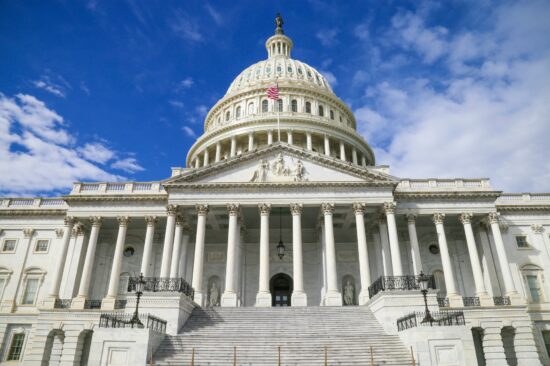The Kingdom of God is an explosively veiled inbreaking into the present world order of the reign of Jesus himself as emperor of the cosmos. This being the case, it ought to change the way we see ourselves, and our place in this age and in the one to come.
And yet, there’s a great danger in the evangelical world among some who—as the world seems to secularize more and more—think we should withdraw from the public square and simply “focus on the gospel” in the life of our own congregations. There’s only one problem with that.
The gospel doesn’t give us that option.
In fact, ignoring so-called “political issues” doesn’t lead to a less politicized church but to a more political church. One cannot preach the gospel in 19th-century America and not address slavery without abandoning the gospel. One cannot preach the gospel in 21st-century America apart from addressing the sexual revolution without abandoning the gospel. Silence baptizes the status quo.
Being gospel-centered and seeking first the kingdom of God should not dampen our concern for political and cultural engagement, then, but should instead heighten it. After all, the priorities of the King—seen in his restoration of the creation—must become the priorities of his kingdom colony, the church.
The question is the “why” and the “how.”
We engage politically because we love our neighbors, because we care about human flourishing. But we do so on multiple fronts. We engage on Capitol Hill on issues ranging from stopping the abortion industry, to protecting religious liberty, to speaking out for human rights for the persecuted overseas. We cultivate churches that see the holistic nature of the kingdom of God and who shape consciences of people to live as citizens. But we always do that with a focus that we are not prosecuting attorneys but defense attorneys. We are seeking, ultimately, to point people to the Lamb of God who takes away the sin of the world.
The gospel means we must point to the sin—and call it that—but it means we don’t stop there. We speak with a northern Galilean accent that says, even to those who hate us, there’s good news for those who repent and believe.
That means we speak and we vote and we mobilize. Onward Christian soldiers. But we don’t do so as gloomy pessimists, continually wringing our hands or crying conspiracy. And we don’t do it as naïve utopians, believing we can organize our way back to Mayberry. We do it as those who weep for those around us who are being sifted by the darkness. We do it as those who are cheerily marching to Zion, knowing that whatever the short-term setbacks, we are on the winning side of history.
We teach our people that their vote for President of the United States is crucially important. They’ll be held accountable at Judgment for whomever they hand the Romans 13 sword to. But we teach them that their vote on the membership of their churches is even more important. A church that loses the gospel is a losing church, no matter how many political victories it wins. A church that is right on public convictions but wrong on the gospel is a powerless church, no matter how powerful it seems.
That means modeling a Christian political engagement that doesn’t start or end with politics alone. It starts and ends with the gospel and the kingdom of God. Those who oppose our convictions will hate us. Those who want to use our church voting lists as their political organizing tools won’t understand us. So be it. Kingdom first.
We want to see our so-called enemies out-voted when they’re doing harmful things, unelected from office when they’re hurting the common good. But we don’t stop there. We want to see them transformed by the blood of Christ. We don’t only want to sing “Onward Christian soldiers, marching as to war.” We also want to sing “Sing above the battle strife: Jesus saves.”
This was published at The Gospel Project.









